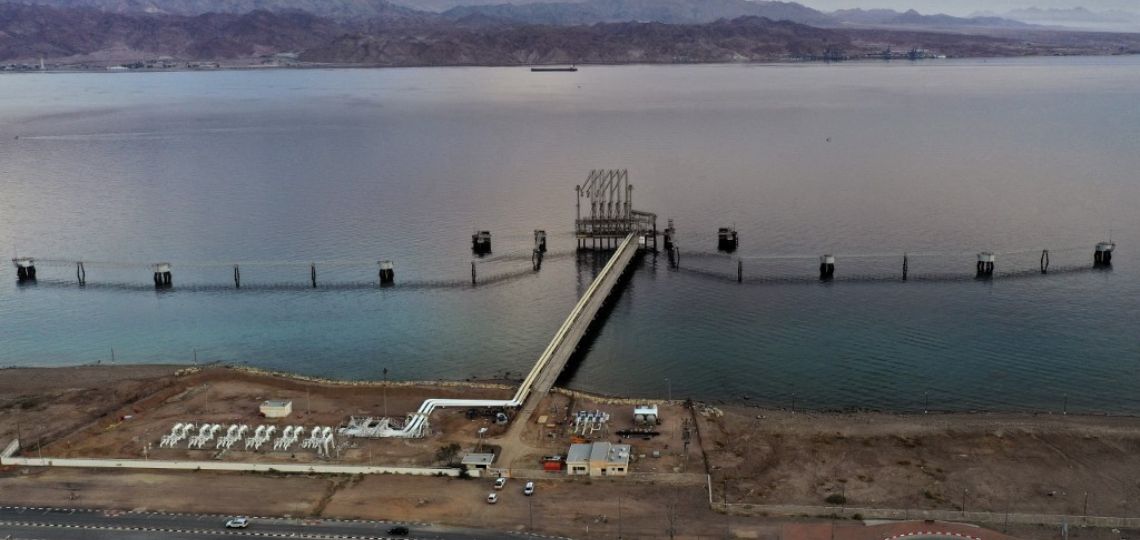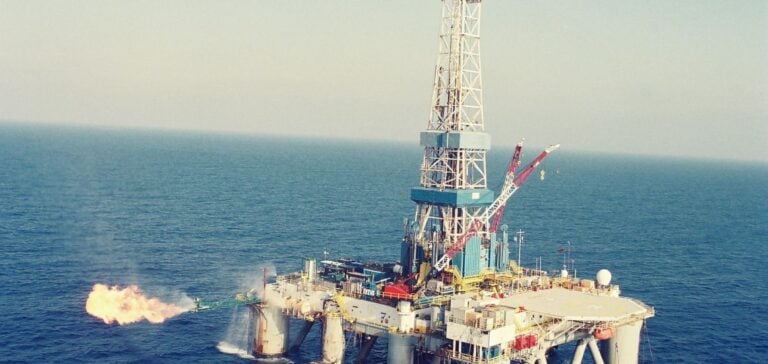Is the UAE-Israel oil deal a strategic turning point in the Middle East? At any rate, this is the question that arises after the historic normalization of ties between the two countries. The Israeli government has just announced the opening of discussions with Dubai concerning the use of a joint oil pipeline (the Europe Asia Pipeline). It links the Red Sea port of Eilat with Ashkelon in the Mediterranean, bypassing the Suez Canal.
With a capacity of 600,000 barrels/day, this pipeline will mainly be used to transport crude oil from the Middle East to Europe. It will be co-managed by the Israeli state-owned company EAPC and the Emirati company MED-RED Land Bridge. Operating in both directions, the pipeline will also be able to transport crude oil from Central Asia and Europe to the Indian Ocean. If the project goes ahead, it could become a major oil route in the years to come.
The strategic importance of the UAE-Israel oil deal
The announcement of talks on the Eilat-Ashkelon pipeline sent shockwaves through the Middle East. The question of oil supply routes is central in a region still highly dependent on hydrocarbon exports. Several factors explain the strategic importance of this new road.

The vulnerability of the Suez Canal
The first factor is the vulnerability of the Suez Canal route and its pipeline, SUMED. Due to its lack of depth, the canal is effectively unable to accommodate VLCC supertankers. They can load around 2 million barrels, twice the maximum allowed on this route. As a result, crude carriers have to use two vessels instead of a single VLCC, generating additional costs.
They can also transport their crude via the SUMMED pipeline built parallel to the Suez Canal. The problem, however, lies in the pipeline’s limited capacity, which can only handle 2.34 million barrels/day. This represents a mere 40% of oil flows through the canal. With the increase in traffic, we can therefore expect this road to become rapidly congested over the next few years.
The Suez Canal is the world’s third-largest oil transit route. Nearly 6 million barrels are transported by this route every day. This makes the UAE-Israel pipeline an interesting alternative, particularly for the use of VLCCs to relieve traffic congestion.
A conflict of influence with Turkey
The UAE-Israel oil deal should also be seen as a strategy for the influence of both countries on the regional scene. For the Israeli government, the agreement opens up the possibility of turning the country into a transit zone for Europe. Tel Aviv’s ambition is to become an oil and gas hub in order to increase its influence in the region. This ambition is also shared by Turkey, which is the big loser in the rapprochement between Dubai and Tel Aviv.
For the Emiratis, the oil agreement serves to counter Turkish influence on transit to Europe. Dubai thus hopes to compete with the Kirkuk-Ceyhan route, which transports 500,000 barrels/day of Iraqi crude through Turkey. The UAE also plans to deliver gas to Europe via an extension of the EastMed pipeline. This could make it possible to capitalize on Dubai’s recent huge gas discoveries in its Jebel Ali field.
At this point, however, the gas project has barely gone beyond the discussion stage. Nevertheless, it could be an important element in the future relationship between the Israeli and Emirati governments.
The uncertainties of the UAE-Israel oil deal
In some respects, the UAE-Israel oil deal is very ambitious, and not limited to the oil sector alone. Yet there are still grey areas that cast doubt on the agreement’s true strategic significance.
The project’s lack of transparency
One of the first questions raised by the project concerns its relative lack of transparency. Indeed, the Israeli government has always refused to publish information on the physical and financial state of the pipeline. This is due to the special nature of the Eilat-Ashkelon pipeline, which was originally conceived as a joint project with Iran. After the Islamic revolution of 1979, it was unilaterally nationalized by Israel, creating a legal dispute between the two countries.
Since then, absolutely nothing has been known about the companies using the pipeline. This lack of transparency is particularly problematic for investors, especially in the event of environmental damage. In 2014, this pipeline was responsible for the worst ecological disaster in Israel’s history. This lack of transparency could considerably reduce investor interest in the project.
Regional geopolitical uncertainties
Another question concerns the geopolitical effects of the UAE-Israel oil deal. Indeed, by bypassing the Suez Canal, the draft agreement provoked the ire of Egypt. For Cairo, this is a crucial issue for its public finances and its status in the region. Under these conditions, it is not impossible that the UAE and Israel will limit their ambitions in order to satisfy the Egyptians.
Similarly, this agreement does nothing to resolve transit problems in the Straits of Hormuz and Bab-el-Mandeb. Rivalries with Iran and instability in Yemen will therefore remain major obstacles to Emirati exports to Europe. The solution would therefore be to use the East-West pipeline that crosses Saudi Arabia to the Red Sea. However, this will depend on the pipeline’s capacity and Riyadh’s recognition of the State of Israel.
So it’s still too early to say whether the UAE-Israel oil deal represents a genuine geopolitical revolution. For this to happen, the pipeline will undoubtedly have to be extended to the Gulf countries. In practice, the scope of the project will depend to a large extent on the Saudi state’s attitude towards Israel.





















